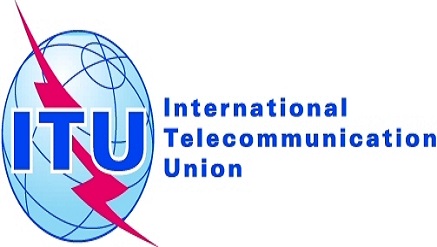Telecom
Addressing The Urban/Rural ICT Divide

ITU is about to publish its updated ICT database shortly. The headline figures of 3.2 billion people online / 4.2 billion people offline are well-known, highlighting the substantial international digital divide.
Another important issue within countries is the rural/urban digital divide, the domestic digital divide most often referred to, in addition to the gender digital divide or differences in Internet access between different communities or minorities.
I recently had the pleasure of addressing the Commonwealth Telecommunication Organization (CTO) ICT Ministers Forum 2016 on this vital topic.
This Forum, the second hosted by CTO, benefitted from the presence of Ministers, Permanent Secretaries, Heads of regulatory agencies of 20 countries, over 130 delegates and a range of industry partners including Inmarsat, Avanti, Huawei, BT and Facebook.
The Forum debated a broad spectrum of far-ranging and topical subjects including ICT regulation, universal service, broadband strategies, cybersecurity and Internet governance.
Why does the rural/urban digital divide arise? Evidence suggests that it comes about as the result of a complex interplay of factors on both the supply and the demand side (“The State of Broadband 2015” report).
On the demand side, lack of purchasing power, literacy and socio-cultural factors can all play a role in hampering demand for telephony or Internet services, as well as lack of relevant content in local or indigenous languages.
On the supply side, the market structure, population density, network coverage and local business models can all contribute to making telecommunication services unavailable or unreliable.
A report prepared for ITU last year by the consultancy Analysys Mason explores the cost behavior involved in extending networks nationwide in TFYR of Macedonia, and found that the cost of coverage rises sharply after around 40% household coverage with fibre (roughly corresponding to Macedonia TFYR’s urban population of around 57%), making it commercially infeasible to extend coverage of FTTH and FTTC much beyond 44% of households for that country. In countries with higher urban populations, the proportion of households which are commercially feasible to cover is likely to be higher.
So what’s to be done about the urban/rural divide? Many of the conditions for an ‘enabling environment’ are by now well-known, although a challenging range of different regulatory environments exist in different countries.
164 ITU Member States have now established an ICT regulator, and a higher number have introduced competition in the mobile market.
Best practice guidelines for telecom regulators are published regularly each year at ITU’sGlobal Symposium for Regulators (GSR)event, but broadly speaking, regulators should engage in regular consultations and benchmarking, with an open approach and the encouragement of new technologies (such as VoIP), and work with the industry and other major stakeholders to resolve potential issues quickly as they arise (on topics such as roaming fees, OTTs, FDI, interconnection, taxation, depending on the country and/or region).
With regards to universal service, a range of different policy options are also available, including legal requirements,Universal Service Obligations, license conditions and or Universal Service Funds (USFs).
It can also be helpful to include universal service for remote and rural areas in the National Broadband Plan.
The figure below shows the range of different options available to ITU Member States, according to a recent survey undertaken by the BDT.
For the CTO, nearly half (26 countries or 49%) of all Commonwealth countries have an operational USF.
A slightly higher proportion (31 countries or 59%) of all Commonwealth countries have included broadband in their definition of Universal Access or Service.
Despite these well recognized policy frameworks, the urban/rural digital divide persists and is becoming more evident.
This is a critical area that needs to be addressed if we are to achieve the 2030 development agenda, as without connecting the 4 billion people currently unconnected it will in impossible to implement the 17 SDGs.
Many organisations are working to bridge this gap, including CTO and ITU.
But more needs to be done to collaborate, pool resources and avoid duplication. This is itself a huge challenge.
Thanks to the close relationship that exists between CTO and ITU, our two organisations can continue to work together to help bridge this gap.
Malcolm Johnson (@ITU_DSG) was elected ITU Deputy Secretary General at the ITU Plenipotentiary Conference 2014 in Busan, Republic of Korea. Mr. Johnson was elected as Director of ITU’s Telecommunication Standardization Bureau at the ITU Plenipotentiary Conference in 2006 in Antalya, Turkey and was re-elected at the ITU Plenipotentiary Conference 2010 in Guadalajara, Mexico
Telecom
Spacecoin Secures Licenses to Roll Out Satellite Connectivity in Nigeria, Kenya

Spacecoin, US-based, has announced the signing of recent agreements with local authorities and operators to launch satellite connectivity pilot projects in Africa.

The initiatives, focused on Kenya and Nigeria, aim to serve areas where terrestrial networks remain limited or unavailable.
n Kenya, Spacecoin has obtained a transmission license from the Communications Authority, allowing it to test satellite-based solutions for connectivity and Internet of Things (IoT) monitoring, particularly in rural and peri-urban areas with limited internet access.
According to the Kenyan regulator, internet penetration remains below 50% of the population, despite mobile penetration exceeding 130%.
In parallel, the company is continuing operations in Nigeria under an existing license issued by the Nigerian Communications Commission (NCC).
This authorization supports initiatives aimed at delivering affordable broadband connectivity to isolated and underserved communities.
Spacecoin’s approach is based on a decentralized satellite network using nanosatellites in low Earth orbit (LEO).
Combined with blockchain-based protocols, this architecture is intended to offer more flexible and cost-effective connectivity services than traditional networks, while also enabling the integration of IoT solutions for a range of uses, from smart agriculture to infrastructure monitoring.
These projects are part of a broader strategy to help narrow Africa’s digital divide, where a significant share of the population still lacks access to reliable internet services.
Satellite technology is increasingly viewed as a complement to terrestrial infrastructure, particularly in hard-to-reach areas where deployment costs and geographic constraints remain high.
Beyond Africa, Spacecoin is also running pilot projects in Asia, working with local partners to test the viability of its model across different regulatory and geographic environments.
According to the company’s management, growing interest from regulators reflects a shift toward solutions capable of reaching populations that have long been excluded from internet access.
Telecom
AVEVA Names Khaled Salah Vice President for Africa to Drive Growth

AVEVA, a global leader in industrial software, driving digital transformation and sustainability, today announces the appointment of Khaled Salah, 37 years old, as Vice President of Africa.

Khaled Salah
In this new role, he will be responsible for about 30 employees to ensure the successful implementation of AVEVA’s growth strategy. Khaled Salah will report directly to Jesus Hernandez, SVP of the EMEA region.
A 15-years + career across different industries and domains
With a MBA in management from the Warwick business school, UK, and a master’s degree in engineering from Ain Shams university in Egypt, Khaled Salah is an active advocate for driving sustainable progress in the industrial sector. With Sustainability in mind, Khaled is keen on making a positive business impact, while fostering progress for people and the planet.
He started his career at Schneider Electric, in 2013 in the global supply chain and evolved through various roles such as Europe procurement and supply chain strategy Manager, and Global Commercial strategy Director for the industrial automation business. Khaled Salah has developed a strategic understanding of all those fields.
After 12 years in Schneider Electric, Khaled joined AVEVA in 2022 to lead AVEVA and Schneider Electric global strategic partnership, across all industries managing a team of 30 people.
He has led the introduction of new AVEVA software solutions to initiate and develop significant growth areas across all Schneider Electric verticals.
Ambitious plans for AVEVA in Africa
In addition to his current role as AVEVA and Schneider Electric partnership Vice-President, Khaled now takes over the management of AVEVA’s activities in Africa.
Jesus Hernandez, SVP of the EMEA region says: “Africa is a strategic region for AVEVA. In this major industrial market, customers, world leaders in the fields of Energy, Metal & Mining, Chemicals, and Water, are looking for AVEVA’s expertise to accelerate and drive their digital transformation and sustainability strategies, as well as their energy transition projects.
“Khaled Salah’s qualities of leadership in a global environment will benefit his team spread across 12 countries including Algeria, Morocco, Egypt, Kenya, Nigeria, and South Africa.”
Motivated by the prospect of capitalizing on the talent of his team to strengthen AVEVA’s presence in Africa in the years to come, Khaled Salah says: “Helping my team realize their professional potential is close to my heart.
“We will work together to support and accelerate the digital transformation of industries in Africa, in particular through CONNECT, our industrial intelligence platform, with the support of our ecosystem of partners. »
Telecom
Google Report: Nigeria Leads Global AI Adoption in Learning, Entrepreneurship

A Google-Ipsos report reveals Nigerians topping global AI usage at 88%, surpassing the 62% worldwide average, with sharp rises in education and business applications.

“Our Life with AI: Helpfulness in the hands of more people” shows 93% of Nigerians using AI for learning complex topics versus 74% globally, 91% for work assistance, and 80% for new ventures—nearly double the 42% global rate.
Taiwo Kola-Ogunlade, Google’s West Africa Communications Manager, stated: “Nigerians are creatively using AI to unlock opportunities for learning, growth, and economic empowerment, shaping their future with technology.”
Key findings highlight 91% viewing AI positively for learning access, 95% expecting benefits for students and educators, and strong optimism—80% excited versus 20% concerned, compared to global 53%-46% split. Frequent users show 90% excitement

 E-Financial3 days ago
E-Financial3 days agoHere Are Nigerian Banks That Have Secured Their Licences

 E-Financial3 days ago
E-Financial3 days agoZenith Bank Top Nigerian Bank Pick Ahead of GTCO, AccessCorp

 Telecom3 days ago
Telecom3 days agoMTN CEO Toriola Hails Nigeria’s Telecom Transformation at MIPAD

 News3 days ago
News3 days agoICPC Charges Ozekhome with Forgery, Corruption Over London Property

 E-Financial3 days ago
E-Financial3 days agoNigeria Processed $92.1Bn Crypto Transactions in 12 Months — PwC

 E-Financial3 days ago
E-Financial3 days agoHow Crypto Criminals Stole $700m from People – often Using Age-Old Tricks

 General News2 days ago
General News2 days agoCybersecurity Firm Detects a Wave of Crypto Phishing Following BlockFi Bankruptcy

 Telecom3 days ago
Telecom3 days agoLebara Launches Agent Registration Portal















